Composition and Rhetoric Concentration
The MAPW’s Composition and Rhetoric concentration is a great choice for those seeking to advance their skills as writers or pursue academic careers through a Ph.D. program. Professional opportunities include working in nonprofit administration, community engagement, editing and publishing, and public policy. Recent Composition and Rhetoric alumni are working as nonprofit development directors, social media managers, editors, proposal writers, and writing instructors.
Meet the Faculty
Composition and Rhetoric faculty, who are dedicated to the education and professionalization of graduate students, specialize in a variety of research areas, including the rhetoric of social movements, digital rhetoric, multimodal composition, linguistics, community literacy, and writing center studies. Their research informs their teaching in exciting ways, providing a balance between historical and theoretical foundations and current practices.
-
Dr. Meishan Chen
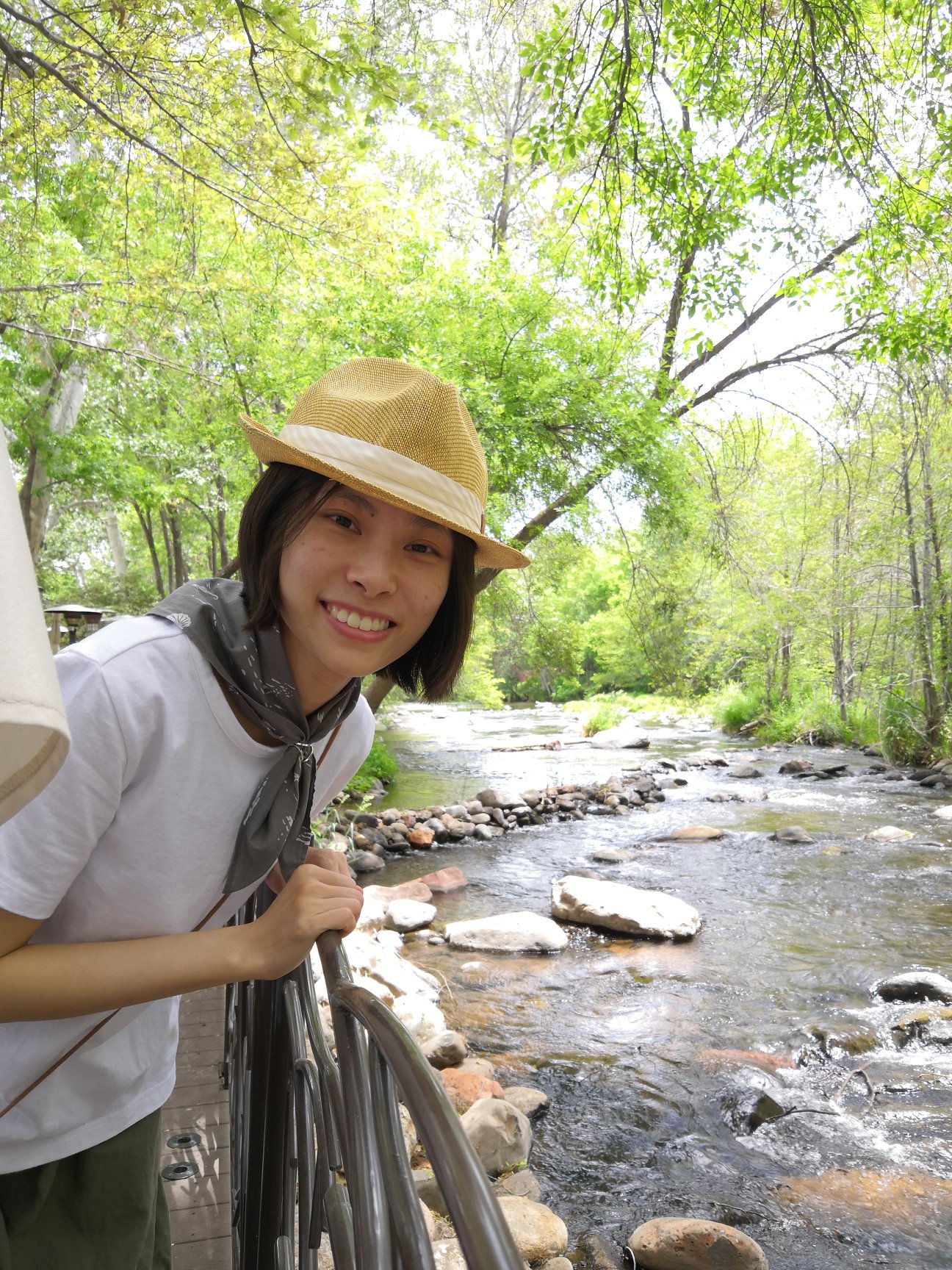 Dr. Meishan Chen’s research areas include corpus linguistics (Curious about corpus
linguistics? Here is a website that offers great intro of CL), using corpus approach in teaching language use and professional writing, and teaching
English to speaks of other languages (TESOL). She has also published research articles
in areas such as quantitative research methods in applied linguistics field. Students
in her linguistics and writing classes learn about using naturally occurred text files
to detect language patterns, word choices, linguistic features, and discourse structures
in different types of writing and learn to produce effective writing pieces based
on analysis of target professional writing genres.
Dr. Meishan Chen’s research areas include corpus linguistics (Curious about corpus
linguistics? Here is a website that offers great intro of CL), using corpus approach in teaching language use and professional writing, and teaching
English to speaks of other languages (TESOL). She has also published research articles
in areas such as quantitative research methods in applied linguistics field. Students
in her linguistics and writing classes learn about using naturally occurred text files
to detect language patterns, word choices, linguistic features, and discourse structures
in different types of writing and learn to produce effective writing pieces based
on analysis of target professional writing genres. -
Dr. Letizia Guglielmo
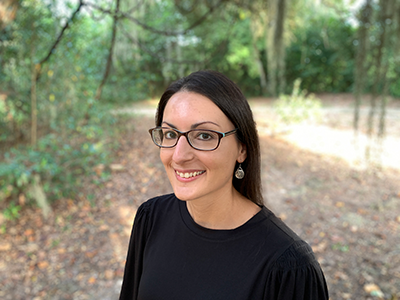 Dr. Letizia Guglielmo is professor of English and joint-appointed in the Department
of English and the Interdisciplinary Studies Department at KSU. She teaches courses
in professional writing and rhetoric and gender and women’s studies, often at the
intersection of both and including recent offerings in Feminist Rhetorics and Rhetoric
and U.S. Social Movements. She also serves as a Faculty Success Fellow and coach in
KSU’s Center for Excellence in Teaching and Learning (CETL), supporting faculty in
writing and publishing and offering mentoring support for current and emerging leaders.
Her research and writing focus on feminist rhetoric and pedagogy, gender and pop culture,
the intersections of feminist action and digital communication, and professional development
for students and faculty. She is coeditor and author with Sergio C. Figueiredo of
Immigrant Scholars in Rhetoric, Composition, and Communication: Memoirs of a First
Generation (NCTE), editor and author of Misogyny in American Culture: Causes, Trends, and Solutions (ABC-CLIO), coauthor with Lynée Lewis Gaillet of Scholarly Publication in a Changing Academic Landscape: Models for Success (Palgrave), coeditor with Lynée Lewis Gaillet of Contingent Faculty Publishing in Community: Case Studies for Successful Collaborations (Palgrave), and editor and author of MTV and Teen Pregnancy: Critical Essays on 16 and Pregnant and Teen Mom (Rowman & Littlefield). Her writing has also appeared in a variety of edited collections
and professional journals.
Dr. Letizia Guglielmo is professor of English and joint-appointed in the Department
of English and the Interdisciplinary Studies Department at KSU. She teaches courses
in professional writing and rhetoric and gender and women’s studies, often at the
intersection of both and including recent offerings in Feminist Rhetorics and Rhetoric
and U.S. Social Movements. She also serves as a Faculty Success Fellow and coach in
KSU’s Center for Excellence in Teaching and Learning (CETL), supporting faculty in
writing and publishing and offering mentoring support for current and emerging leaders.
Her research and writing focus on feminist rhetoric and pedagogy, gender and pop culture,
the intersections of feminist action and digital communication, and professional development
for students and faculty. She is coeditor and author with Sergio C. Figueiredo of
Immigrant Scholars in Rhetoric, Composition, and Communication: Memoirs of a First
Generation (NCTE), editor and author of Misogyny in American Culture: Causes, Trends, and Solutions (ABC-CLIO), coauthor with Lynée Lewis Gaillet of Scholarly Publication in a Changing Academic Landscape: Models for Success (Palgrave), coeditor with Lynée Lewis Gaillet of Contingent Faculty Publishing in Community: Case Studies for Successful Collaborations (Palgrave), and editor and author of MTV and Teen Pregnancy: Critical Essays on 16 and Pregnant and Teen Mom (Rowman & Littlefield). Her writing has also appeared in a variety of edited collections
and professional journals. -
Dr. Kim Haimes-Korn
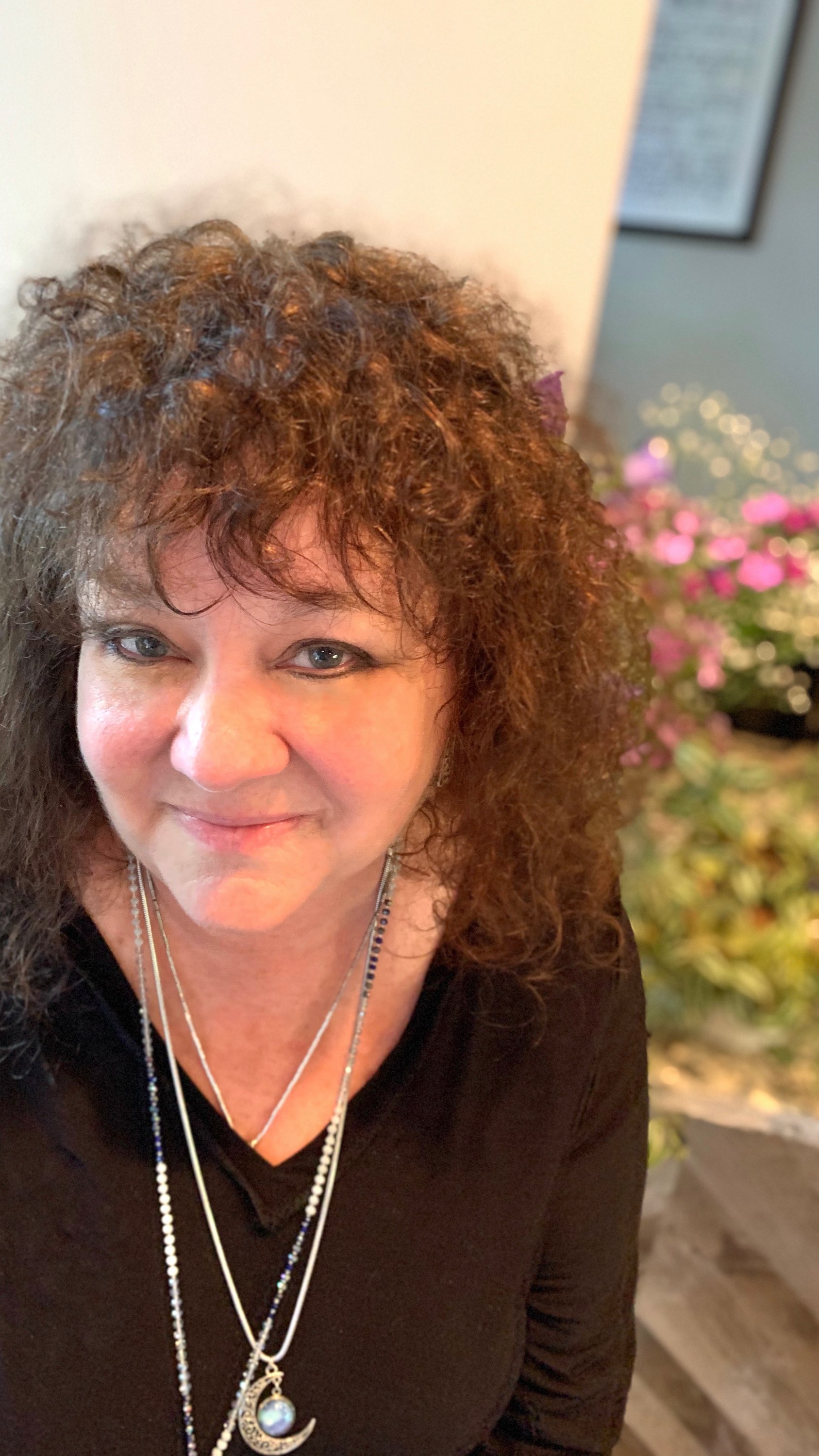 Dr. Kim Haimes-Korn is a Professor in the department of English at Kennesaw State
University. She earned her Ph.D. and M.A. from Florida State University in English
with areas of concentration in Rhetoric and Composition and African-American Literature
and her B.A. degree in Humanities and Communication. Her work in the field for over
25 years focuses on innovative practices for writing classes and the training and
mentoring of teachers. Her research and publications center on multimodal composition,
digital pedagogies, response theory and portfolios. You can check out some of her
most recent blog posts in which she supports teachers of writing to integrate digital
literacies into their classes on the Multimodal Mondays blog. She teaches courses
at both the undergraduate level (core and degree classes) and at the graduate level
including: Composition, African-American Literature, American Literature, Rhetorical
Theory and Practice, Digital Rhetoric, Digital Collaboration, Digital Storytelling,
Careers in Writing, Interactive Feature Writing, Honors Classes, Project Portfolio
and Composition Theory and Pedagogy. Her teaching philosophy encourages dynamic learning
and critical digital literacies and focuses on students’ powers to create their own
knowledge through language and various “acts of composition.”
Dr. Kim Haimes-Korn is a Professor in the department of English at Kennesaw State
University. She earned her Ph.D. and M.A. from Florida State University in English
with areas of concentration in Rhetoric and Composition and African-American Literature
and her B.A. degree in Humanities and Communication. Her work in the field for over
25 years focuses on innovative practices for writing classes and the training and
mentoring of teachers. Her research and publications center on multimodal composition,
digital pedagogies, response theory and portfolios. You can check out some of her
most recent blog posts in which she supports teachers of writing to integrate digital
literacies into their classes on the Multimodal Mondays blog. She teaches courses
at both the undergraduate level (core and degree classes) and at the graduate level
including: Composition, African-American Literature, American Literature, Rhetorical
Theory and Practice, Digital Rhetoric, Digital Collaboration, Digital Storytelling,
Careers in Writing, Interactive Feature Writing, Honors Classes, Project Portfolio
and Composition Theory and Pedagogy. Her teaching philosophy encourages dynamic learning
and critical digital literacies and focuses on students’ powers to create their own
knowledge through language and various “acts of composition.”“I like to have fun every day, return to nature when things get too crazy and think deeply about way too many things. I love teaching. It has helped me understand the value of amazing relationships and boundless creativity.”
Check out her C.V. and visit her website, Acts of Composition.
-
Dr. Jeanne Law-Bohannon
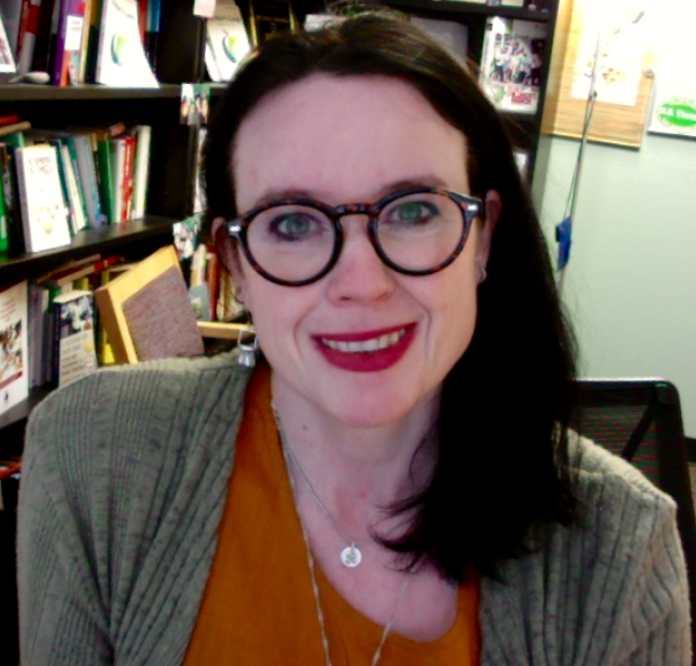 Dr. Jeanne Law-Bohannon is an associate professor of English and the Director of KSU’s
first-year composition (FYC) program. FYC serves more than 9,000 students annually,
in a two-course sequence (ENGL 1101 and ENGL 1102). More than 110 faculty teach in
FYC, in almost 700 sections per year. Jeanne’s research interests include multimodal
writing strategies, inclusive pedagogy, contract grading methodologies, civil rights
rhetorics, and archival research.
Dr. Jeanne Law-Bohannon is an associate professor of English and the Director of KSU’s
first-year composition (FYC) program. FYC serves more than 9,000 students annually,
in a two-course sequence (ENGL 1101 and ENGL 1102). More than 110 faculty teach in
FYC, in almost 700 sections per year. Jeanne’s research interests include multimodal
writing strategies, inclusive pedagogy, contract grading methodologies, civil rights
rhetorics, and archival research.In her work as FYC director, Jeanne embraces a collaborative model, working with students, faculty, and University leadership to strike a balance between measurable, sustainable student success and faculty’s academic freedom to innovate in the classroom.
In her research, Jeanne focuses on community-driven, digital storytelling projects; she was awarded a $100,000 grant from the Rich Foundation to document and preserve experiences from the Atlanta Student Movement of the 1960s.
Jeanne serves on several committees and workgroups, including KSU’s General Education Council, the Council of Writing Program Administrators’ (CWPA) digital learning and diversity committees, KSU’s steering committee for the Quality Enhancement Plan (QEP), and the Committee to Commemorate the Atlanta Student Movement.
Her publications include The Writer’s Loop: A Guide to College Writing (Macmillan); Teaching with Lunsford Handbooks; two chapters in Teaching Information Literacy and Writing Studies (Purdue Press), a chapter in Digital Reading and Writing in Composition Studies (Routledge); a chapter in Teaching Through the Archives (Southern Illinois University Press); and the multi-platform, grant-funded #ATLStudentMovement project.
-
Dr. Laura McGrath
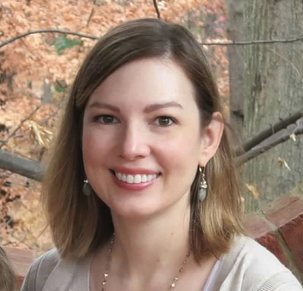 Dr. Laura McGrath teaches courses for the MAPW’s applied and composition and rhetoric
concentrations, including Writing for Social Media, Research Methods, and Intro to
Literacy Studies. As a digital rhetoric, writing, and media studies specialist, she
has published an edited collection titled Collaborative Approaches to the Digital in English Studies; articles in Computers and Composition, Literacy in Composition Studies, and Res Rhetorica; and chapters in Reading and Writing New Media and Avian Aesthetics in Literature and Culture. Her current research focuses on digital rhetorical practices used by conservation
and science communication professionals. Additional information about Dr. McGrath
can be found on her faculty web page.
Dr. Laura McGrath teaches courses for the MAPW’s applied and composition and rhetoric
concentrations, including Writing for Social Media, Research Methods, and Intro to
Literacy Studies. As a digital rhetoric, writing, and media studies specialist, she
has published an edited collection titled Collaborative Approaches to the Digital in English Studies; articles in Computers and Composition, Literacy in Composition Studies, and Res Rhetorica; and chapters in Reading and Writing New Media and Avian Aesthetics in Literature and Culture. Her current research focuses on digital rhetorical practices used by conservation
and science communication professionals. Additional information about Dr. McGrath
can be found on her faculty web page. -
Dr. Mary Lou Odom
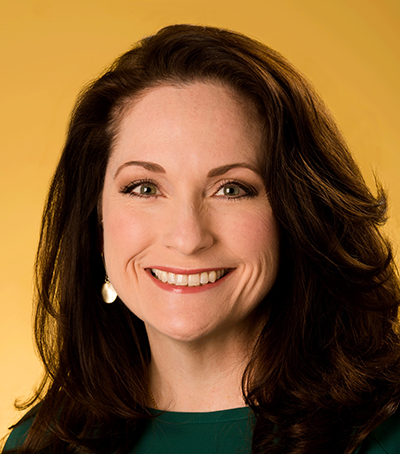 Dr. Mary Lou Odom earned her Ph.D. in English (Rhetoric and Composition) from the
University of Wisconsin-Madison. In addition to serving as director of the Writing
Center, which includes the Graduate Writing and English Language Programs, for over
ten years, she has led writing across the curriculum initiatives and the MAPW teaching
assistant program at KSU. She teaches both undergraduate and graduate courses in the
field of rhetoric and composition and works with capstone students on topics such
as writing pedagogy, literacy, writing centers, and rhetoric. Her recent publications
investigate writing’s influence on the reading behaviors of college students, and
she currently works on a grant-funded project developing open educational resources
to improve course material affordability in first-year composition courses.
Dr. Mary Lou Odom earned her Ph.D. in English (Rhetoric and Composition) from the
University of Wisconsin-Madison. In addition to serving as director of the Writing
Center, which includes the Graduate Writing and English Language Programs, for over
ten years, she has led writing across the curriculum initiatives and the MAPW teaching
assistant program at KSU. She teaches both undergraduate and graduate courses in the
field of rhetoric and composition and works with capstone students on topics such
as writing pedagogy, literacy, writing centers, and rhetoric. Her recent publications
investigate writing’s influence on the reading behaviors of college students, and
she currently works on a grant-funded project developing open educational resources
to improve course material affordability in first-year composition courses. -
Dr. Chris C. Palmer

Dr. Chris C. Palmer researches and teaches about present-day and historical English linguistics, including studies of word-formation, sociolinguistics, and pedagogy. He's currently focused on teaching language variation and change in both U.S. and global Englishes at the high school and university levels, co-editing the recent volumes Teaching the History of the English Language (MLA 2019), Teaching Language Variation in the Classroom (Routledge 2019), and Teaching English Language Variation in the Global Classroom (Routledge 2022).
He's also interested in the language, literature, and culture of medieval England; the intersections of American politics, language, and rhetoric; and interdisciplinary connections between linguistics and writing studies. He's currently a coordinator for the Professional Writing for International Audiences Certificate. Additional examples of his work can be found on his faculty web page.
-
Dr. Amanda Pratt
Coming soon!
-
Dr. Lara Smith-Sitton
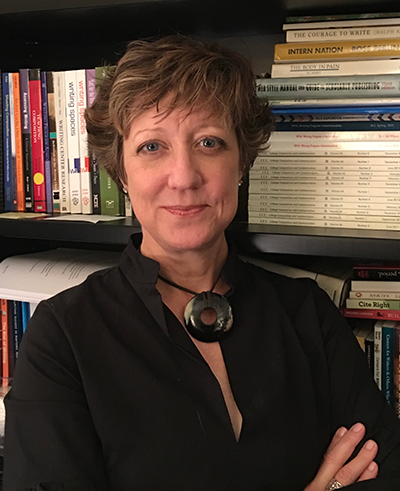
Dr. Lara Smith-Sitton obtained her PhD from Georgia State University. Currently, an Associate Professor, she joined the MAPW faculty in 2015. Originally hired as the Director of Community Engagement in the KSU English Department, Dr. Smith-Sitton developed a range of community-based projects for students, created student resources, and oversaw the undergraduate and graduate internship program. She is now the Coordinator of the English Major/Undergraduate Studies and teaches a range of writing courses in the department. In the MAPW program she teaches courses including Publishing in the 21st Century, Introduction to Professional Writing, Careers in Professional Writing, and Practical Internship. In her work with MAPW students, she often crafts directed studies and connects students to practicum projects with community partners and nonprofit organizations that relate to their capstone projects. Her community projects primarily focus on immigration, prison/jail/returning citizen education, and food security. Her research interests include community engagement & public scholarship, high impact practice pedagogies (community writing/service /community-based learning, and internships), writing program design & administration, and 18th- and 19th-Century rhetoric. She is the co-editor of Green Card Youth Voices: Immigration Stories from an Atlanta High School (2018, 2019). Her work has appeared in journals including Reflections, Community Literacy Journal, Spark, and Double Helix.
Courses
In addition to research- and career-focused courses and special topics offerings, the MAPW program includes the following core composition and rhetoric courses:
- Rhetorical Theory (PRWR 6150) covers the rhetorical situation, argumentation, invention, arrangement, style, delivery, and memory as they are presented in works ranging from the ancient writings of the pre-Socratics, Plato, and Aristotle to contemporary and emerging theories.
- Understanding Writing as a Process (PRWR 6300) explores how professionals in various creative, workplace, and instructional situations approach writing and revision.
- Composition Theory and Pedagogy (PRWR 6500) investigates issues relevant to writing instruction today and explores how theories of composition inform teaching practices.
- Introduction to Literacy Studies (PRWR 6650) offers an overview of approaches for studying and shaping literacy in a range of social contexts, including workplaces and instructional settings.
The MAPW also offers a series of language courses focused on intersections among the areas of linguistics, rhetoric, composition, and professional writing:
- Teaching Writing to Speakers of Other Languages (PRWR 6750) focuses on key issues that are pertinent to second language writing and teaching methodology.
- World Englishes (PRWR 6760) investigates varieties of English used in diverse global contexts, exploring how sociolinguistic histories and multicultural backgrounds influence the use of English in different regions of the world.
- Intercultural Communication in Context (PRWR 6860) looks at the roles of intercultural communication in rhetoric and writing practices both domestically and internationally, in varied professional contexts such as education, publishing, government, business, and non-profits.
Certificate in Professional Writing for International Audiences
In addition, the MAPW offers a Professional Writing for International Audiences Certificate. This certificate provides students with interdisciplinary grounding in writing practices important to careers with global impact. Students will take 12 credits of classes: two required from the three above-mentioned courses (PRWR 6750, 6760, 6860); one within the MAPW program; and one either within or outside of the MAPW program (a list of the course options for the certificate can be found in the Graduate Catalog).











